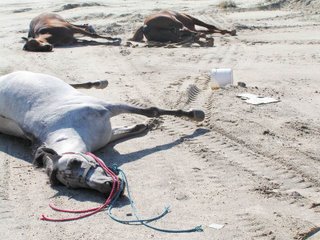I used to think that the bidoon/ bedoon/ bidun [depending on how you want to spell it – meaning “stateless” “without (nationality)”] issue was something limited only to Kuwait. I was wrong. There are many places in the world where people are without nationality; Bahrain, UAE, and Iraq are some examples.
Long before the imperialists carved up the world into parcels, we were all without nationality, weren’t we? Now, bidoon fight to gain the same types of basic rights that many of us take for granted: the ability to move freely from one country to another; documentation and identification papers; healthcare; education; and more.
I have dear friends in Kuwait who are bidoon. You wouldn’t know it from looking at them, or by their family names. It isn’t like they are any different than anybody else. It is only after hearing their stories that I have come to understand how deep the problem is and how much they suffer.
I met one of my funniest friends on the internet. He’s bidoon and he fights to make things right. In ‘merican, he’d be known as a “ball buster”. He’s always pushing and it works for him. I love him because of his strength and courage. When he is the most upset and down, the guy always makes jokes. He was afraid to tell me at first that he is bidoon. The way he was acting, I thought he was going to tell me that he had some kind of an infectious disease. His hands were all shaky and he found it hard to speak. He was muttering something about “Kuwaitis” and “people who don’t have citizenship” and I’m like, “Oh, so you’re bidoon? Big phuckin deal!” Anyways, he’s always at the Bidoon Council stirring up trouble and he’s on all the bidoon forums out there and in diwaniyas around Kuwait raising hell for the bidoon cause. You go, boyyyyy!
Some bidoon friends I know are held prisoner by members of their own families with Kuwaiti nationality (yes, that happens); having to depend on these relatives for “names on paper” to provide car titles, business licenses, etc. One friend’s Kuwaiti wife holds so much power over him that he has trouble moving. He is constantly depressed and sees no way out. The Landcruiser HE paid for is in her name and she takes it back when she's pissed off at him. The apartment is in her name. The kids would go with her if he left and he probably wouldn't get visitation. When he first told me he was bidoon, I thought he was going to cry. When I told him I couldn’t care less if he was green and lived on Mars – that I liked him for the person he was – he was shocked. He literally expected me to run away.
My kind-hearted friend, Hilal, who took his own life in 1997. He had given up all hope. He was a gentle giant and I used to think of him as the cowardly lion in the Wizard of Oz. I think about him and how his life could have been different with a piece of paper. I think about how much I have and how much I take for granted and what my life could have been like if I had been born in a different country to a different family.
One of my Kuwaiti friends told me, “I don’t understand why they are bidoon. My father went to school with their grandfather.” A few years later, the 2 brothers I worked with received their Kuwaiti nationality after years of trying. I remember congratulating them at the time; yet it happened at a time when I was new to Kuwait, so I didn’t understand full implication of what it meant. I see how their lives have changed now and how they appear to have rocks lifted from their shoulders. They have better jobs and they laugh a lot more often.
I have a friend whose whole family moved to New Zealand to get nationality there. Generations of their family had been brought up bidoon in Kuwait and they never saw an end, so they headed to a place they had never been before and returned after years to live here again with the rest of their family. They now have options they never had before.
Some people choose to go to other countries to get nationality (either through naturalization or through purchase of nationality with willing governments). Others refuse saying (as I have heard), “No. I am Kuwaiti. I will someday get my citizenship.”
There are a lot of stories and no one will know about them unless people openly discuss the bidoon issue. So, go ahead, send comments.
Through this blog, I won’t tolerate intolerance, hatred, finger-pointing or nay-sayers. If I even get those types of comments, I will most likely delete them because I believe it defeats the purpose of positive efforts and energy. Stop the hate, find a solution.

